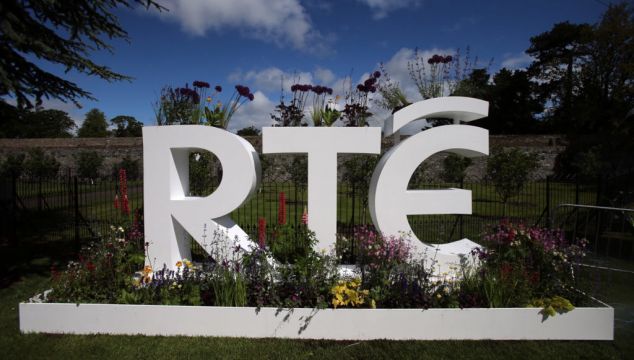Public service broadcasting in Ireland is facing a “genuinely existential moment”, an Oireachtas committee has heard.
Moya Doherty, the chair of the RTÉ board, warned that time is running out to find a solution to the dire financial fortunes of the Irish broadcaster.
Representatives from RTÉ, including director general Dee Forbes, faced questions from politicians on Irish language programming, funding and the future of the TV licence.
Ms Doherty, who is entering her final year as chair, told the Oireachtas Media committee that the public service broadcaster was facing a “confluence” of factors including the rise of Netflix, Amazon Prime and Apple TV, as well as the “relentless advance of social media into the personal lives of audiences”.
Ms Doherty warned politicians: “These profound shifts outline both the difficulties created for the national broadcaster and the increased importance of public service media at a time of unprecedented disruption.”
She called for a national debate on the future of public service broadcasting.
The broadcaster is currently awaiting the publication of the report from The Future of Media Commission, a body charged with considering the challenges facing Irish media, and RTÉ representatives on Wednesday vented frustrations at the delay in publishing the report.
Ms Doherty, who has spent eight years as chair of the RTÉ board, said that this debate cannot “shy away from uncomfortable truths” and said that “matters of funding public service broadcasting and our broken licence fee system” need to be discussed.
While she stressed the important work of the broadcaster during the Covid-19 pandemic, something praised by most TDs and senators, she warned: “The traditional licence model for funding is clearly broken.”
That model, she said, was causing a €65 million loss each year.
“Pause for a moment and imagine what the Irish creative sector, the arts, the independent sector and RTÉ could have created,” she said.
“Imagine the jobs that could have been created, the creativity and talent that could have been nurtured. This is a lost opportunity on a grand scale – and we are all the poorer for it.”
Painting a stark picture of the media industry, Ms Doherty told the committee: “The creative industries which RTÉ is at the centre of are at the forefront of a workplace upheaval, a revolution driven by a new understanding that if the first industrial revolution was driven by brawn and physical work and the second and third industrial revolutions by brain and intellect, then the fourth revolution in which we find ourselves will be driven by an economy of the heart.
“This is not some fanciful romantic notion but a conviction that the work we do should be grounded in what we believe in and brings fulfilment and should be aimed at making a sustained contribution to the common good.”
“After eight years as chair of RTÉ and public service media, my love and commitment for RTÉ is matched only by my concern and fear for its future. Time is commodity we no longer have,” she said in her opening statement to the committee.
The licence fee recurred as an issue among committee members, as the broadcaster was warned by some TDs that any increase in the cost of the fee would be “unaffordable”.
Ms Forbes told the committee: “There is a huge amount of money being lost in the system. We are not asking for more money.
“What we are asking for is that the licence fee system that underpins public service broadcasting is reformed.”
Fianna Fáil Senator Malcolm Byrne, as well as Sinn Féin Senator Fintan Warfield, raised concerns about the quality of the RTÉ Player.
However, RTÉ representatives hit back and pointed to the funding challenges facing the organisation.
“RTÉ has in the past been accused of going with a begging bowl, always with the begging bowl,” Ms Doherty told Mr Byrne.
“And I was trying to think of a different analogy and I thought if you give a person of fish, they would be fed for a day. If you give them a fishing rod, they will be able to fend for themselves.
“I think RTÉ has faced a decade of brutal cuts. And the only way any organisation can grow and improve is through investments, not continual cuts.”
Ms Forbes echoed this: “While there are there were rooms for improvement, we are not complacent. However, we have to match the monies we have with what we can do and certainly further investment is required and, again, pending an outcome on funding it is top of our agenda.”







